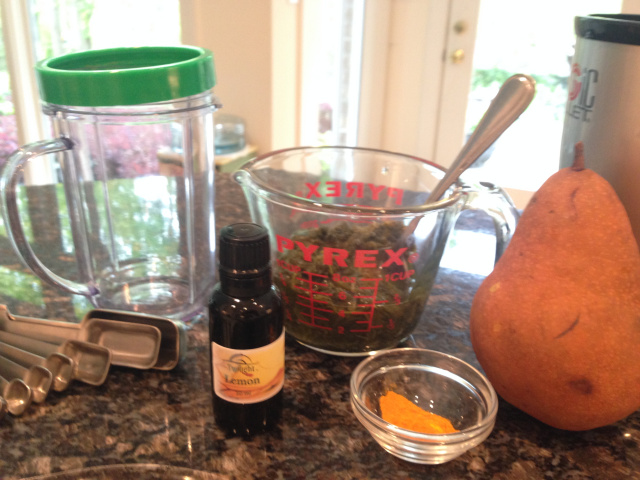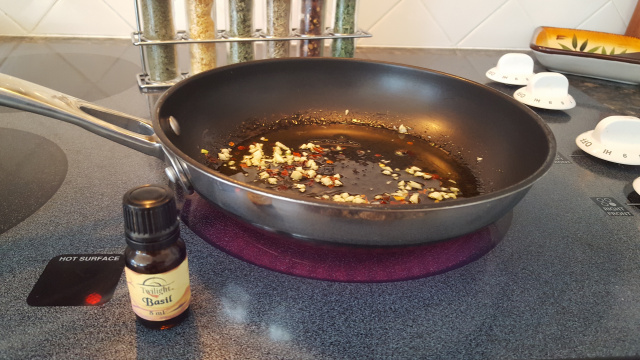Cooking With Essential Oils

Cooking with essential oils can inspire creativity and a cupful of enthusiasm. Just think about all of the herbs, citruses, and even flowers that are used in the culinary arts. With a little guidance and practice, the possibilities are endless.
Enhancing your food with the aromatic flavors of essential oils can lead to a new experience of "Spa Cuisine" right in your very own home.
There are always safety tips to follow when introducing your body to new ingredients or flavorings. Make sure that your essential oils are not cut with low quality oils or adulterated in any way. Fragrance oils and synthetics are not suggested. Essential oils called absolutes (such as "rose absolute") require a solvent based method of obtaining the oils and are not used in cooking. However, the essential oil of rose (which is steam distilled) works great. Oils that are obtained through steam distillation and expression of certified organic plants are considered safe to use.
Use essential oils that you would normally use when in their herb, spice, fruit, or edible flower form. If you think of them as food or seasonings, then they are usually safe to use. I use the phrase "think of them as food" because I eat dandelion greens and some people think of them as weeds. And no there is no dandelion oil.
Keep in mind that essential oils evaporate during the heating process. Depending on the strength of the oil, the flavoring will be at its height when added to your recipes at the last minute.

Essential oils are said to be approximately 100x stronger than their herb or fruit of their counterpart. Just kinda keep this in mind when adding 1 or 2 drops to a recipe when that thought in the back of your mind whispers "add a little more." Extra drops can alter your recipe dramatically, or ruin it, leaving you to start over. I'm not attempting to discourage you. I'm just making suggestions based on my experiences. Instead of adding the drops directly to your simmering concoction or pitcher of tea, scoop out a spoonful of your mixture and add the drop (or drops) to the separated mixture. When you are satisfied with the amount added, stir it back into your recipe. If you have added too many drops to your spoonful, you can toss it out and start over while saving your entire concoction in the process.
Many of the oils distilled from herbs have a very strong flavor and taste. Preparing small pre-made portions of your favorite flavored oils helps soften the intense flavor. Basil, oregano, rosemary, and lemongrass blended into various cooking oils (such as coconut oil, olive oil, grapeseed, peanut or sesame oils to name a few) are usually easy to work with when you begin your aromatherapy cooking journey.
When you decide to try baking with essential oils, you will probably have to increase the amount you use compared to when you are working with dressings, sauces, or soups.
Enhancing the flavors of desserts that do not require cooking, such as fruit dishes and whipped topping, blend well and result in exciting tastes sensations.
|
EOs FOR YOUR RECIPES
Herbs: Basil, oregano, lemongrass, peppermint, rosemary, lavender Spices: allspice, anise, black pepper, cinnamon, clove, turmeric Citrus: bergamot, grapefruit, lemon, lime, orange, litsea cubeba, mandarin |
|
Suggested Uses
|
|
Be sure and sign up for our email updates and product specials... We'll let you know when our webinars and classes are scheduled!
|




